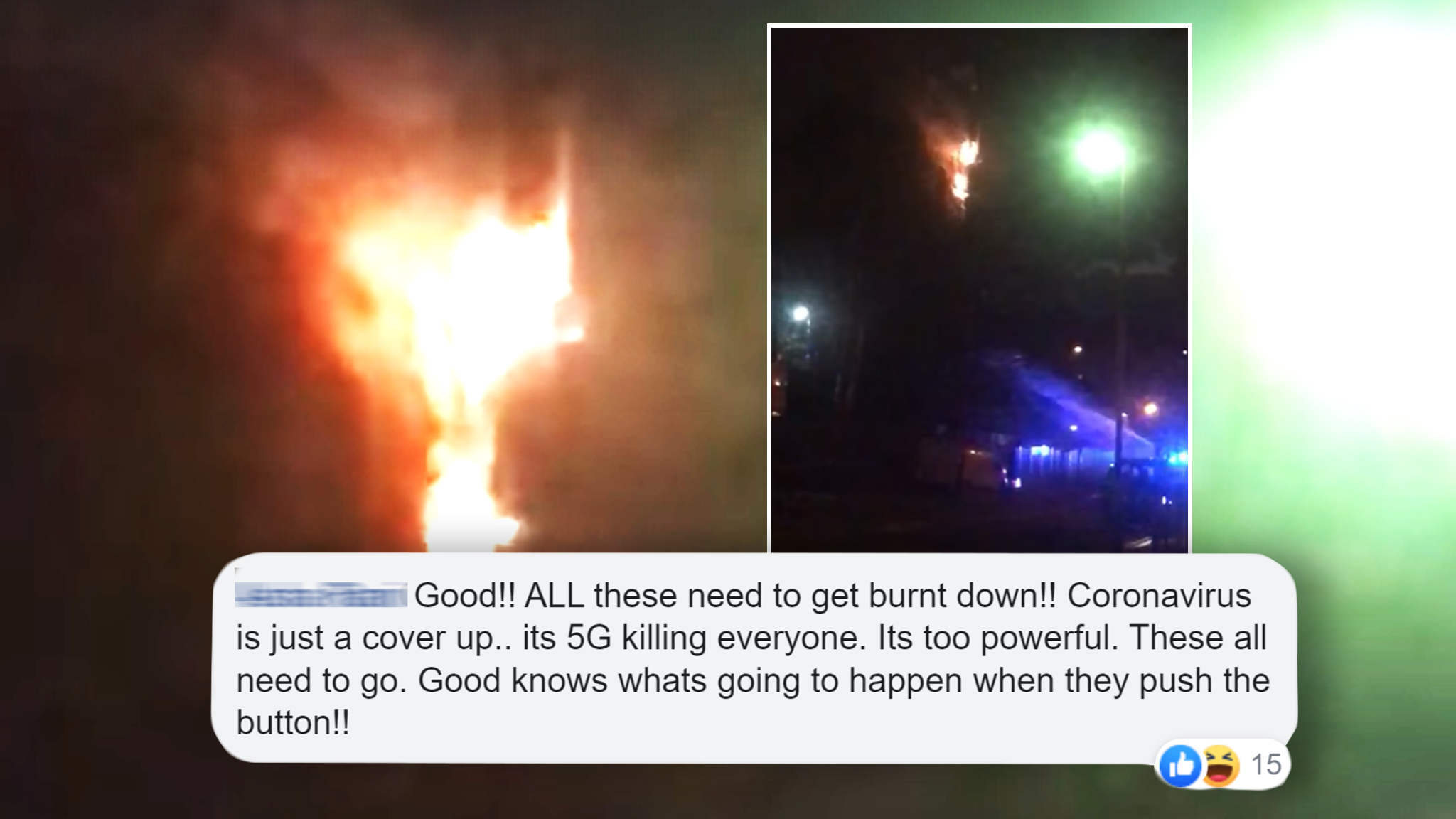Anarchy in the UK: nation rocked by 5G mast conspiracy theory
Following weeks of 5G mast attacks across the United Kingdom, the telecoms industry has condemned these ‘baseless’ attacks on critical infrastructure.

Over the last month, 5G masts in both Birmingham and Liverpool were set ablaze, and Vodafone confirmed that it was responding in relation to its 5G towers.
“I’m saddened to report that vandals have carried out a series of arson attacks on mobile phone masts during this time of national crisis,” said Nick Jeffery, Group Executive Committee & CEO Vodafone UK. “It beggars belief that some people should want to harm the very networks that are providing essential connectivity to the emergency services, the NHS, and rest of the country during this difficult lockdown period.
“This is now a matter of national security. Police and counter terrorism authorities are investigating. But rest assured that our mobile and broadband networks remain resilient, and that you, your families and businesses, will stay connected.”
'Infodemic' sweeps across the UK
"We're seeing reports of masts vandalised because of a conspiracy theory linking 5G tech to the spread of Covid-19. This claim is baseless. We must look after the infrastructure and people keeping us in touch.”
Marc Allera, BT.
Since the beginning of the year, the number of fake news posts appearing on social media – linking 5G to coronavirus – has grown exponentially, to the point where the World Health Organization (WHO) labelled it an ‘infodemic’ at the start of February.
However, over the last few weeks the number of 5G masts being targeted by vandals has increased, and the British telecoms industry has been unanimous in its condemnation of the attacks, made by people who mistakenly believe that new networking technology is causing cases of coronavirus.

And a joint statement was also released by the UK’s four mobile network operators, EE, O2, Three, and Vodafone.
BT’s CEO, Marc Allera, went on to state that the theories connecting 5G with Covid-19, most of which are being made in local Facebook groups and on platforms such as Twitter and Instagram, are ‘baseless’, and he has urged the public to leave the company’s phone masts alone.
SIGN UP FOR E-MAIL NEWSLETTERS
Get up to speed with 5G, and discover the latest deals, news, and insight!
“Phone masts keep us all connected at this extraordinary time,” Allera wrote in a tweet. “And yet we're seeing reports of masts vandalised because of a conspiracy theory linking 5G tech to the spread of Covid-19. This claim is baseless. We must look after the infrastructure and people keeping us in touch.”
Government addresses attacks
In the government’s daily press briefing, NHS professor Stephen Powis, outlined the importance of keeping the country’s communications infrastructure intact at a time when people are relying on mobile networks more than ever.
“The 5G story is complete and utter rubbish, it's nonsense, it's the worst kind of fake news,” explained professor Stephen Powis. “The reality is that the mobile phone networks are absolutely critical to all of us, particularly in a time when we are asking people to stay at home and to not see relatives and friends.
“In particular, those are also the phone networks that are used by our emergency services and our health workers and I'm absolutely outraged, absolutely disgusted that people would be taking action against the very infrastructure that we need to respond to this health emergency. It is absolute and utter rubbish, and I can't condemn it in stronger terms than that.”
Speaking to those that may be taken in by the conspiracy theories currently being spread online, Vodafone UK CEO Nick Jeffery urged people to stop spreading ‘baseless’ theories.
“Online stories connecting the spread of coronavirus to 5G are utterly baseless,” said Jeffrey. “Please don’t share them on social media – fake news can have serious consequences.”

Dan is a British journalist with 20 years of experience in the design and tech sectors, producing content for the likes of Microsoft, Adobe, Dell and The Sunday Times. In 2012 he helped launch the world's number one design blog, Creative Bloq. Dan is now editor-in-chief at 5Gradar, where he oversees news, insight and reviews, providing an invaluable resource for anyone looking to stay up-to-date with the key issues facing 5G.

